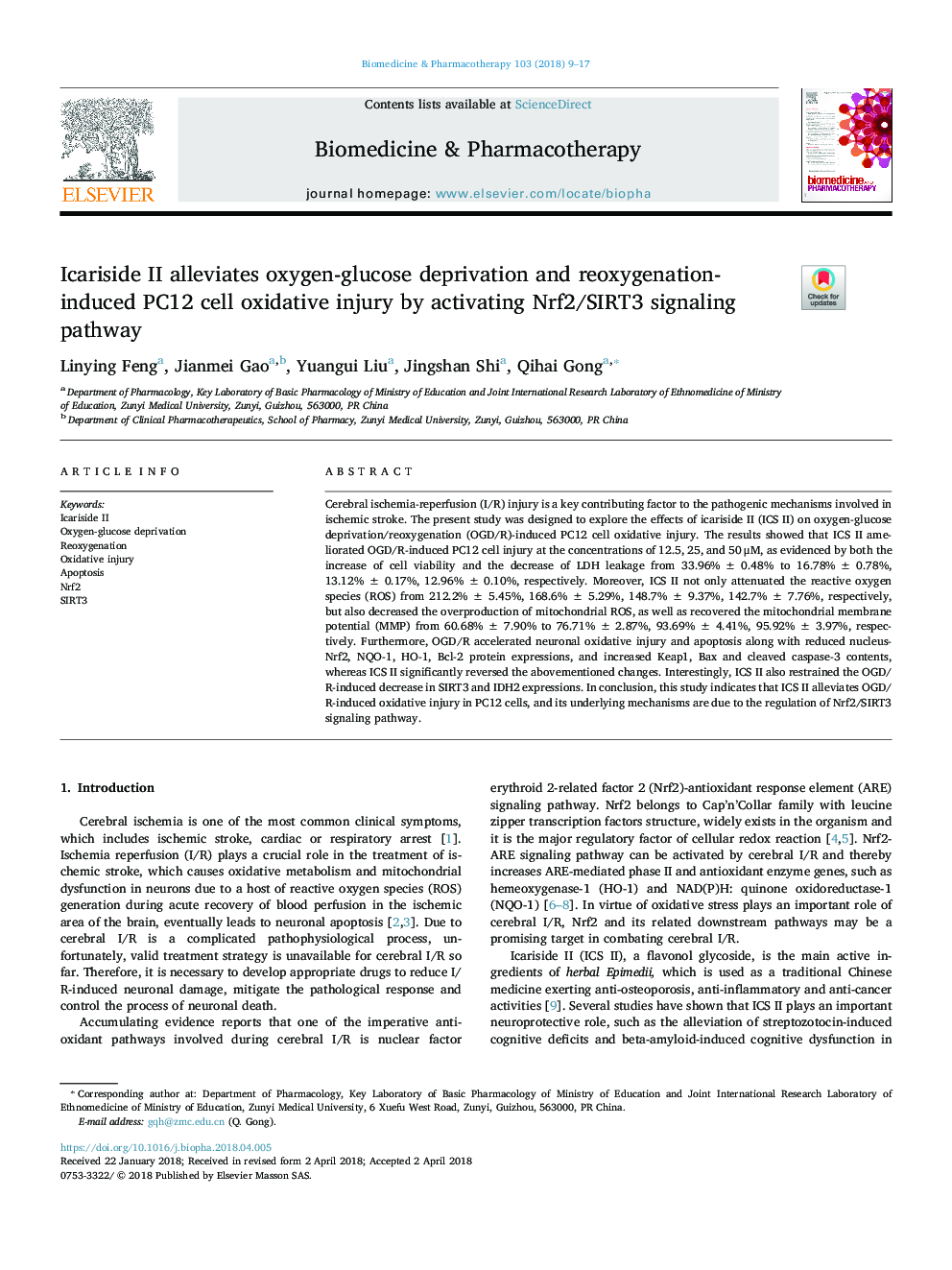| Article ID | Journal | Published Year | Pages | File Type |
|---|---|---|---|---|
| 8524919 | Biomedicine & Pharmacotherapy | 2018 | 9 Pages |
Abstract
Cerebral ischemia-reperfusion (I/R) injury is a key contributing factor to the pathogenic mechanisms involved in ischemic stroke. The present study was designed to explore the effects of icariside II (ICS II) on oxygen-glucose deprivation/reoxygenation (OGD/R)-induced PC12 cell oxidative injury. The results showed that ICS II ameliorated OGD/R-induced PC12 cell injury at the concentrations of 12.5, 25, and 50â¯Î¼M, as evidenced by both the increase of cell viability and the decrease of LDH leakage from 33.96%â¯Â±â¯0.48% to 16.78%â¯Â±â¯0.78%, 13.12%â¯Â±â¯0.17%, 12.96%â¯Â±â¯0.10%, respectively. Moreover, ICS II not only attenuated the reactive oxygen species (ROS) from 212.2%â¯Â±â¯5.45%, 168.6%â¯Â±â¯5.29%, 148.7%â¯Â±â¯9.37%, 142.7%â¯Â±â¯7.76%, respectively, but also decreased the overproduction of mitochondrial ROS, as well as recovered the mitochondrial membrane potential (MMP) from 60.68%â¯Â±â¯7.90% to 76.71%â¯Â±â¯2.87%, 93.69%â¯Â±â¯4.41%, 95.92%â¯Â±â¯3.97%, respectively. Furthermore, OGD/R accelerated neuronal oxidative injury and apoptosis along with reduced nucleus-Nrf2, NQO-1, HO-1, Bcl-2 protein expressions, and increased Keap1, Bax and cleaved caspase-3 contents, whereas ICS II significantly reversed the abovementioned changes. Interestingly, ICS II also restrained the OGD/R-induced decrease in SIRT3 and IDH2 expressions. In conclusion, this study indicates that ICS II alleviates OGD/R-induced oxidative injury in PC12 cells, and its underlying mechanisms are due to the regulation of Nrf2/SIRT3 signaling pathway.
Related Topics
Health Sciences
Medicine and Dentistry
Oncology
Authors
Linying Feng, Jianmei Gao, Yuangui Liu, Jingshan Shi, Qihai Gong,
